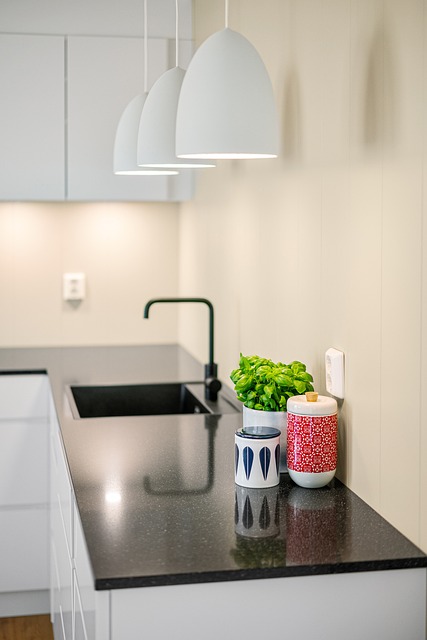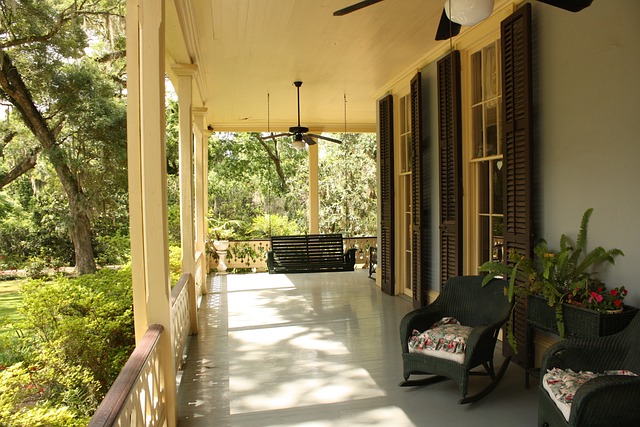In Singapore's real estate market, discerning the differences between the trends and investment potential of Executive Condominiums (ECs) and Housing & Development Board (HDB) resale properties is key for homeowners. ECs are a hybrid of public and private housing, offering larger units with diverse facilities that evolve from public to private status over time, influencing their value appreciation. HDB resale flats offer affordability and stability with uniform design options, the resale price index of which is affected by factors like proximity to amenities, market demand, economic conditions, and government policies. The value of both ECs and HDB resale properties is influenced by geographical location, property age, housing supply, maintenance, and government regulations. Newer units and those in prime locations typically have higher prices. Market dynamics are further impacted by investor sentiment and broader economic conditions. For long-term investments, comparing ECs and HDB flats is essential, as both offer different advantages suited to various lifestyles and financial situations. ECs, with their affordability, potential for appreciation in mature estates or near future MRT stations, and initial resale restrictions for married or cohabiting Singaporeans with median income or less, are a lucrative investment option. HDB flats, accessible and inclusive to a broad demographic, offer affordability complemented by government grants, with a consistent value appreciation trajectory. Both ECs and HDB flats present unique paths to securing a stake in Singapore's property market, each with its own set of benefits for different investor profiles.
navigating the Singapore property landscape, prospective homeowners face a pivotal decision between an Executive Condominium (EC) and a Housing & Development Board (HDB) resale flat. This article delves into the nuances of EC price versus HDB resale prices, offering insights into market dynamics, influential pricing factors, and long-term value considerations for both options. By examining the factors that affect the valuation of ECs and HDB flats, readers can make an informed decision tailored to their financial trajectory and housing aspirations.
- Understanding the Market Dynamics: Executive Condominium (EC) vs HDB Resale Prices
- Factors Influencing Pricing: What Determines EC and HDB Resale Values?
- Making an Informed Decision: Comparing Long-Term Value and Affordability of ECs vs HDBs
Understanding the Market Dynamics: Executive Condominium (EC) vs HDB Resale Prices

In the real estate landscape of Singapore, discerning the nuances between Executive Condominium (EC) and Housing & Development Board (HDB) resale prices is a critical aspect for potential homeowners. The market dynamics for ECs and HDB resale flats differ significantly due to various factors such as lease duration, location, and the maturity of the estate. ECs, which are a hybrid of public and private housing, offer larger living spaces and varying facilities compared to traditional HDB flats. As they transition from being ECs to becoming regular market condominiums after a certain period, their value appreciation can differ from standard HDB resale flat trends. This transformation affects the pricing trajectory, with ECs often commanding higher prices initially due to their superior specifications and later as they mature. On the other hand, HDB resale flats are more uniform in terms of design and location but may offer stability and affordability that appeal to a different segment of the market. The resale price index for these flats is influenced by factors such as proximity to amenities, transportation nodes, and the overall demand within the resale market. Both ECs and HDB resale prices are affected by broader economic conditions and government policies, making it essential for buyers to stay informed about the latest trends and projections in the housing market. Understanding these dynamics allows investors and potential residents alike to make informed decisions tailored to their long-term financial and living objectives.
Factors Influencing Pricing: What Determines EC and HDB Resale Values?

When assessing the resale values of Executive Condominiums (ECs) and Housing & Development Board (HDB) flats, several factors come into play that influence their market pricing. Geographical location is a primary determinant; units situated in prime districts or near amenities such as shopping centers, parks, and transportation hubs tend to command higher prices due to their desirability. The age of the property also plays a role, with newer developments generally fetching higher prices, reflective of modern facilities and contemporary design preferences.
Another significant factor is the quantum of available housing supply in the market, which can affect both ECs and HDB resale values. A surplus of units may lead to a buyer’s market, potentially lowering prices, whereas a scarcity can drive up costs due to competition for limited inventory. Additionally, the condition and state of maintenance of the property are critical; well-maintained units in good condition typically retain and even appreciate their value over time. Moreover, ECs have an additional layer of influence from the eligibility criteria, which include the occupier’s income ceiling and the eventual upgrading to private property status after a certain period, a factor that may attract certain buyers looking for a longer-term investment. Both ECs and HDB flats are subject to government policies and regulations, which can impact resale prices through mechanisms like the Minimum Occupation Period (MOP) and the review of financial criteria for eligibility to purchase. These factors, alongside market sentiment and economic conditions, collectively shape the pricing landscape for Executive Condominiums and HDB resale units.
Making an Informed Decision: Comparing Long-Term Value and Affordability of ECs vs HDBs

When considering long-term value and affordability, potential homeowners often compare the merits of an Executive Condominium (EC) with those of a Housing & Development Board (HDB) flat. Both types of housing serve as significant investments in Singapore’s property landscape, offering distinct advantages that cater to different lifestyles and financial considerations.
ECs, which are a hybrid of public and private housing, come with a 99-year leasehold tenure and initially have restrictions on resale; only Singaporeans who are married or in a long-term relationship and earning a median income or less may apply for an EC. These properties often feature larger living spaces and amenities comparable to those found in private condominiums. Over time, as the lease diminishes, ECs transition towards being more similar to private properties, potentially offering greater flexibility on the resale market. This transition, coupled with their initial affordability, positions ECs as a long-term investment that could appreciate in value, especially if located in mature estates or near future MRT stations.
On the other hand, HDB flats are designed to be accessible to a broader range of Singaporeans, including first-time homeowners and those from lower-income households. These flats come with a 99-year lease or are on freehold land, and they are built to offer a sense of community and inclusivity. HDB flats appreciate in value as well, though the appreciation may be more gradual compared to ECs. The affordability and the various schemes available, such as the CPF Housing Grant for first-timer applicants, make HDB flats an attractive option for many. When making an informed decision between an Executive Condominium and an HDB flat, it is crucial to assess not only the immediate costs but also the future potential of each property type in terms of resale value, upgrading options, and suitability to your long-term housing needs.
When contemplating the long-term investment in property within Singapore, discerning individuals often weigh the options between an Executive Condominium (EC) and a Housing & Development Board (HDB) resale flat. This article has dissected the market dynamics, highlighting how both ECs and HDBs are influenced by diverse factors such as location, supply, demand, and the unique characteristics of each housing type. Prospective homeowners must assess these elements to make an informed decision that aligns with their financial goals and lifestyle preferences. Ultimately, understanding the nuances between EC and HDB resale prices is pivotal for anyone looking to navigate the property market in Singapore with confidence. Both options offer distinct advantages; however, the choice between an Executive Condominium and an HDB resale flat hinges on individual priorities and the desired balance of affordability, space, and potential capital appreciation.



